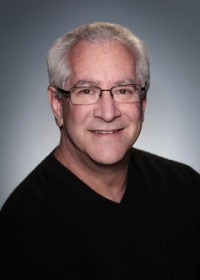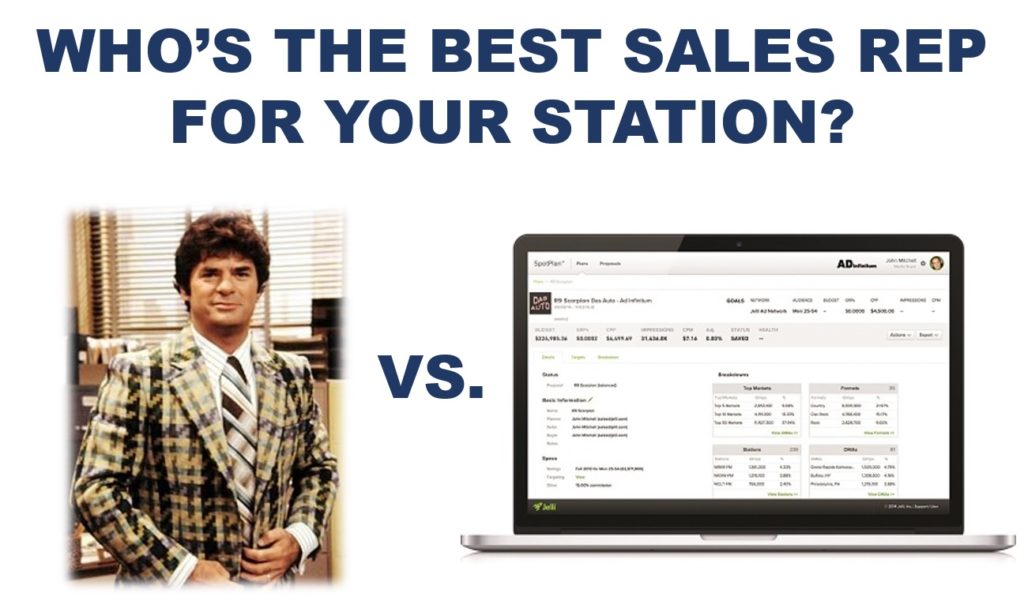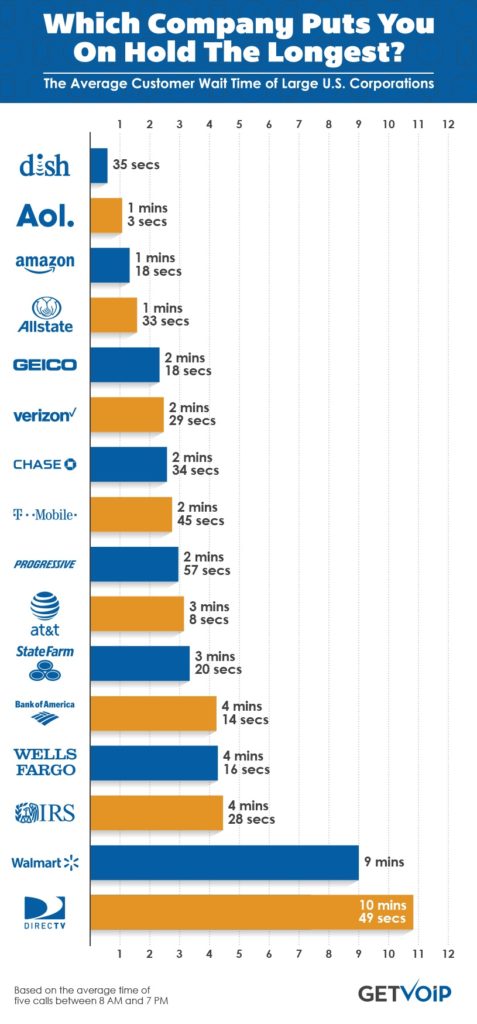 In the past few weeks, Paul Jacobs has been on the road, making sales presentations to radio sellers about the value of our various rock formats. That may sound a bit counter-intuitive, but salespeople need to be sold, too.
In the past few weeks, Paul Jacobs has been on the road, making sales presentations to radio sellers about the value of our various rock formats. That may sound a bit counter-intuitive, but salespeople need to be sold, too.
Along the way, he’s been thinking long and hard about the value of the informed seller, the importance of eye contact, and the value of hometown marketing of radio station audiences. All this during a time when so many stations are being tested by the ad community to deliver results. In today’s guest post, Paul zooms in on the programmatic buying process, the ins and outs, the pros and cons.
We hope it will spur conversations in cubicles, conference rooms, and corner offices because radio’s future depends on its sales and marketing efforts.
Here’s his take… – FJ

Here’s the story right from the pages of The New York Times:
A new company forms in high-tech Seattle, designed to disrupt a traditional business category. Its founder gets funding from an array of investors and sets out to generate “hockey stick growth.” But instead of starting in a garage with a handful of employees, running the business cheaply until it can scale, his vision is to actually hire a full-time sales force. Rather than handling transactions online or dealing with part-timers in order to save money in both salary and benefits, he opts instead for the personal sales approach using live human sales reps.
The company is Redfin, and the category is real estate sales. While having to engage in a fight to convince investors that his plan was a good one, Glenn Kelman argued that real estate is a customer service business. And he averred that the personal connection is Redfin’s secret sauce up against online and mobile competitors like Zillow and Trulia.
And his operating philosophy shines a light on the sales strategy for radio.
These days, the only success stories that you tend to hear about are so-called “scalable businesses” – digital start-ups that create a product or service that can be served up to millions of customers with just a click, requiring a minimal number of employees in the process. Investors love these businesses because of their sheer economy of scale. When you follow the money, venture capital, hedge funds, and private equity funds readily move their funds in this direction, as they try to find the next Facebook or Uber.
But from a consumer standpoint, it can be frustrating dealing with a virtual company. Have you ever tried calling customer service at AT&T or attempted to find out whether hair dryers are on sale at Walmart? The wait times can be excruciating, and once you get through the recorded greeting or you scroll through numerous questions online, you invariably wind up (if you’re “lucky”) talking to someone who isn’t of much help anyway.
GetVoIP created their own survey of telephone wait time, selecting 18 companies from 24/7 Wall Street’s Customer Service Hall of Shame. Then they added airlines, Amazon, and even the IRS. To be sure they had a fair sample of performance, GetVoIP called each company at five different times. Here are the results:

More and more, consumers are placing a higher priority on customer service. Cost-cutting and other “efficiencies” often do more to erode the UX – or user experience – creating problems that upend any cost savings that occur.
This same scalable thinking has been happening in radio as well for many years. The industry has created a “scalable” (read: cost-efficient) solution via economies of scale such as voice tracking, cluster production directors, and other efficiencies. The immediate impact on the bottom line is positive, so it must be good.
Now this mindset is migrating over to sales, where programmatic has become the revenue buzzword. The net-net is that programmatic buying takes the sales out of selling, creating a virtual, scalable marketplace for buyers and stations to transact their business, reaping the best rates without having to sit through a pitch or a story.
So at what point does radio no longer need salespeople, in much the same way the industry has cut back on live and local personalities over the weekend, at night, and in increasingly more dayparts?
It’s hard to imagine a radio industry without human salespeople (although some program directors make take exception to that), and while programmatic provides simplicity and accountability, something is lost in the algorithms. This commoditization of the industry may provide a level of efficiency, but it also has a cost, rendering radio station values down to a rating and a rate, minimizing the value of format differentiation and positioning, air personalities, and event promotion. And in the process, a station’s narrative becomes muted or forgotten.
Don’t read this post as a blanket endorsement of radio salespeople. I spend a lot of time inside radio station conference rooms, and far too many sellers are stuck in the transactional sales mode. But the revenue future – especially on the local level – may lie in the Redfin model: smart, committed, informed, and agile salespeople out in the community, working with clients directly to develop solutions to satisfy their specific needs.
Venture firm Greylock Partners is an investor in Redfin. One of their principals, James Slavet, told The New York Times about the strategic choice to fund this real estate idea:
“To go down this path was contrarian. The classic technology play is to be very scalable and have a small number of people whose products are used by millions of people.”
Like moving homes and condos, media sales are a complex, human endeavor. While some large local and national buys are satisfied with simply buying the ranker and cost-efficiency, that isn’t necessarily a growth strategy. In fact, some fear that it is the road to commoditization and lowest price bidding.
In other words, the proverbial race to the bottom.

We would love to hear from programmatic companies and execs who want to argue this point.
If radio is to be a growth business with the goal of excelling in its local markets, it will require trained local salespeople who are members of their communities. That means working with existing clients on expanding their investments, generating new business, exposing new ideas, developing effective promotions, creating live integration, and engineering successful sponsorships. It requires hard work, recruiting, training, and nurturing – all more difficult than writing code.
Try teaching a computer to do that.
- For Radio, Will It Be Christmas In April (And Hopefully, May)? - April 21, 2025
- The Revolution Will Not Be Monetized - December 30, 2024
- What Kind Of Team Do You Want To Be? - October 4, 2024




I couldn’t agree more – thanks for writing this. Radio IS a customer service business, and it isn’t really about radio, it’s about all the things it can do for an advertiser; increase sales, improve market share, hasten the time between production and sales through effective marketing, improve customer service through recruitment, brand a business…there’s nothing programmatic about developing a solution to meet any of these needs. Ideally, there is the right proportion of strictly transactional selling (and I would still argue that solving that programmatically is a race to the bottom,) and solution-based/customer focused selling. Add this right balance to smart inventory management and a good product with good people and you’ll have a station(s) hitting out of the park time after time.
Leslie, thanks for the comment. The other thing about good salespeople is that they have the ability to solve problems for clients well beyond cost efficiency, and they can identify additional needs that can help clients, and grow revenue. I’m not against programmatic (I’m actually agnostic about it), but there is no substitute for a sales team that embraces their product and audience enthusiastically, and works to help clients grow their business by using the station properly.
Programmatic does not eliminate the need for sales people and great relationships. Programmatic simply eliminates many of the tedious and low-value process and order-taking steps in the buying cycle. The role of the sales person evolves to be more like how Google or Facebook sell ads – strategic account execs who track overall volumes and whether the campaigns are working (and advising on ideas to tweak to achieve even greater ROI). However those reps don’t hover over the shoulder of the client babysitting every keyword buy. Their platforms handle the transactional order. In addition, a rep can uniquely bundle integrated solutions including events, sponsorships and other high value activations.
Radio doesn’t sell itself, except for only a select number of clients who buy consistently every month. For the rest, they need sales to help them understand the value of the medium in this world of choice at the local and national level. Programmatic platforms actually help sales people close deals because they can walk into th client with a digital-like platform that compares favorably to other digital competitors in targeting, reporting and execution. In fact, the ability to discuss radio side by side with digital with a dashboard in the clients hands helps us show how radio can do things that other mediums cannot.
For national campaigns that run on hundreds of stations, many large agencies have already moved to programmatic strategies and so having programmatic capabilites will be table stakes in the coming months. In addition, many digital shops leverage programmatic to “add radio” to their client capabilities without hiring an entire buying department; they can use their existing digital team to execute because the programmatic platforms are similar to their buying process in digital. They still need and appreciate the connection with a sales rep when they are buying from a publisher, exchange or network.
Programmatic is like many technologies – it will be used best by people who understand its strengths and take advantage of those strengths to improve their own productivity. I think like the invention of email on your smartphone, or spreadsheets, or CRM, it will unlock success for salespeople who learn and embrace it as a tool.
Great thoughts and perspective, Mike. I’m not against programmatic and appreciate its additive benefits. I just want to make sure that it isn’t viewed as a way to sell efficiently at the expense of humans. It needs to be additive. I believe there’s room for both.
I agree completely. The two largest sellers of advertising (Google and Facebook) employ both advanced automated platforms and very large sales/account/ad ops teams to support clients. There is no realistic example of scale that I am aware of that removes the importance of sales people from the process. In all cases sales people are aware of clients and work with them to buy properly. But the automation speeds up the process and allows the sales person to focus on results vs process. In fact, it is very important that the sales teams have the traits you describe in your post. However radio sellers need to realize that using more advanced platforms is critical in order to remain competitive in 2016 – not just vs. other radio stations, newspapers and TV stations but vs. digital which is becoming a more common option for even local advertisers.
Great discourse, Mike. Hopefully our points-of-view will combine to create significant revenue growth for the industry.
Agreed! Key is to arm & enable sales team to take business from their clients from any execution channel the clients find easiest to use. The sales team remains involved regardless. It reminds me a little of this funny episode from The Office (Dwight vs. the website): https://www.youtube.com/watch?v=-SLhSnFkJjQ
I couldn’t agree more, Paul.
I might add, that the BEST sales people to sell your station(s) locally, are those that “actually” are Fans of the station (the product) that they are selling. Only they can passionately represent what is special about the station, beyond the numbers. In interviews for sales positions, at the most successful stations that I had the privilege of programming, the GM’s included me, so that I could find out if we were hiring someone that “actually” were listeners to our station. Those folks usually turned out to be our BEST local sales people.
I just responded to another comment that exact point – the great (and most valuable) sellers are those that embrace the audience and the format. If they are numbers sellers, they might as well be replaced by a computer. Those that can actually create solutions instead of efficiency are the ones that will have the most value to the future of radio revenue.
People that feel that programmatic buying can replace a sales force clearly have not sold very much media or have some other special interest that they are promoting. It is particularly unrealistic in smaller and mid sized markets where there is very little ratings related business. It also operates on the assumption that the client has their own creative ready and has no interest in promotions that the station may be doing. Occasionally we get requests for direct response or remnant buys…the ROI on them is so low that they rarely make sense for us to do. If radio shifts to a programmatic model revenues will drop dramatically in response.
Thanks for the perspective, Bob. Hypothetically, there’s room for both, but the essence of the business and key to its growth remains talented, committed salespeople.
In our experience with programmatic in the national advertising market, there is little to no “remnant” buying – it is all premium inventory, premium prices and guaranteed execution. The prices are based on standard broadcaster rate cards, controlled by the broadcasters. What changes is the nature of the RFP process (the back and forth) and the newer programmatic platforms like ours allow buyers and sellers to execute more complex plans that traditional manual processes cannot support.
In addition the buyers and sellers have real-time dashboard for reporting on the campaigns which is a major improvement vs. the current legacy model.
I expect these benefits and approaches to be the same in local – premium approach, using the technology to make the sales persons job easier and the experience with radio better for the buyers.